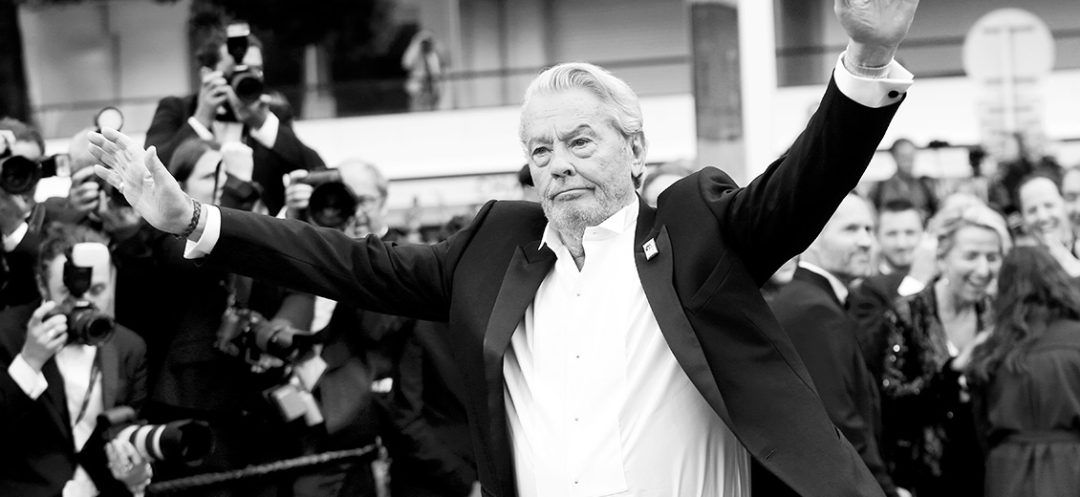
©Andrea Raffin / Shutterstock.com

Alain Delon, the iconic figure of French cinema, has passed away at the age of 88. Although the deterioration of his health foreshadowed the inevitable, the announcement of his death resonated like an emotional earthquake, powerfully reminding us of the end of an era. Here is a look back at the life and career of a legendary actor.
This Sunday, August 18, 2024, the world of cinema lost one of its greatest icons. Alain Delon, the emblematic figure of French and international cinema, passed away at the age of 88 in his Douchy estate, surrounded by his children. The news, announced by his family in a statement, sent shockwaves far beyond France.
For millions of film lovers worldwide, Alain Delon's passing feels like a personal loss. More than just an actor, he embodied a certain idea of French cinema – a blend of charisma, mystery and elegance that marked several generations. For many, it feels as if they have lost a parent or a close friend, because of the intimate connection Delon forged with his audience over the decades.
An extraordinary journey
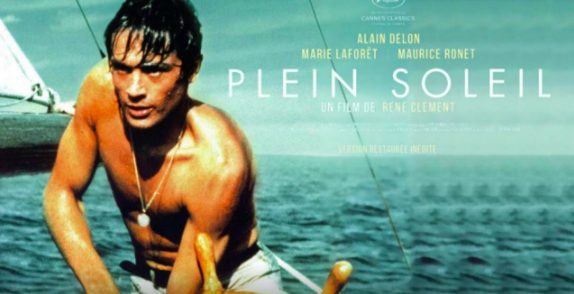
Born on November 8, 1935, in Sceaux, Alain Delon had a difficult childhood, marked by his parents' divorce and a stint in boarding school. After a brief apprenticeship as a butcher and a stint in the French marines that took him to Indochina, he turned to cinema almost by chance.
His career truly took off in 1960 with Plein Soleil by René Clément, in which he played Tom Ripley, an ambiguous and fascinating character that already hinted at the roles that would cement his legend. Quickly, Delon established himself as one of the most sought-after actors of his generation, working with the greatest directors of the time.
Alain Delon's career is studded with films that have become global cinematic classics. Rocco et ses frères and Le Guépard by Luchino Visconti, L'Éclisse by Michelangelo Antonioni, Le Samouraï by Jean-Pierre Melville, La Piscine by Jacques Deray – these masterpieces helped forge the myth of Delon.
His restrained acting style, magnetic gaze and on-screen presence made him the perfect embodiment of the anti-hero, the elegant gangster, or the tormented detective. Delon imposed a unique style, blending toughness and vulnerability, which profoundly influenced French cinema in the 1960s and 1970s.
Although Delon is primarily a French cinema icon, his fame extended well beyond France. He worked in Italy with the greatest Italian filmmakers and even in the United States, although his Hollywood career never really took off.
His popularity was immense in countries as diverse as Japan and Iran, where his films were regularly broadcast on television. This international aura translated into numerous awards, including an honorary Palme d'Or at the Cannes Film Festival in 2019, crowning an exceptional career.
A complex love life
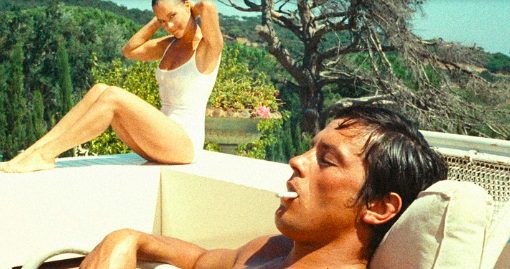 Romy Schneider and Alain Delon La Piscine 1969
Romy Schneider and Alain Delon La Piscine 1969His love life, a true Hollywood scenario, saw the passage of exceptional women, each leaving an indelible mark on his tumultuous journey.
The story begins with Romy Schneider, an incandescent youthful love that left a lasting impression. Then came Nathalie Delon, his only official wife and the mother of his son Anthony, a brief but intense union. Mireille Darc, his companion for fifteen years, embodied the fusion love that shook his marriage.
In the shadows, a secret affair with Dalida added a touch of mystery to his already chaotic love life. Later, Rosalie van Breemen, three decades his junior, gave him two children, Anouchka and Alain-Fabien, defying age conventions.
Anne Parillaud, who shared his life, described him as a "chronically dissatisfied" and rather "tyrannical" man, revealing the dark facets of his complex personality. Yet, Brigitte Bardot, his lifelong friend, speaks of a deep fraternal affection, testifying to the duality of the man.
Delon, driven by love as a source of self-improvement, navigated from one passion to another with rare intensity. His life reflected a bygone era when love was lived without compromise, in excess and extravagance.
A complex and controversial man
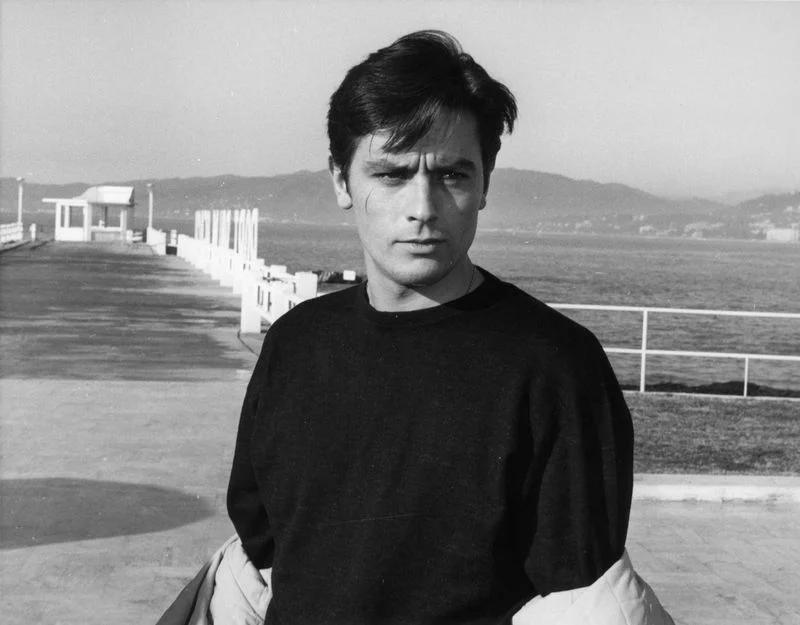
Behind the image of the charismatic actor was a complex, sometimes controversial man. His political stances, controversial statements on various societal issues, and alleged ties to the underworld often made headlines.
In recent years, his private life was also marked by family conflicts, particularly between his children regarding his care and inheritance. These episodes sometimes overshadowed his cinematic legacy, but never entirely tarnished the star's aura.
The Delon case has indeed highlighted the family tensions exacerbated by Alain Delon's deteriorating health and the issues surrounding his inheritance. Once united, the Delon siblings were torn apart over the fate of their father, who is now under legal guardianship. This measure, revealing the actor's vulnerability, also exposed the sordid financial disputes between Anthony and Anouchka Delon. Alain Delon, once an icon of cinema, had become nothing more than a helpless spectator in the drama of his own life.
Beyond the controversies, it is Alain Delon's cinematic work that will be remembered. His influence on French and international cinema is undeniable. Many contemporary actors and directors, from Leonardo DiCaprio to Quentin Tarantino, have expressed their admiration for his work.
His acting style, on-screen presence and charisma have inspired generations of actors. Even in the digital age of special effects, the evocative power of a single glance from Alain Delon in Le Samouraï remains unmatched.
The last years of Alain Delon's career were marked by a certain disenchantment. The actor often expressed his disappointment with the evolution of cinema, which he deemed too commercial. He became less frequent on screens, preferring to focus on other activities such as production or theater.
In 2017, Alain Delon announced plans to star in one final film, La Maison vide, alongside Juliette Binoche and directed by Patrice Leconte. However, this project, which was intended to be Delon's last performance—he had expressed that he didn't want to be seen "old and unsightly" on screen—never materialized. His final role in cinema remains that of Caesar in Astérix aux Jeux olympiques, released in 2008.
A massive void in the French cultural landscape
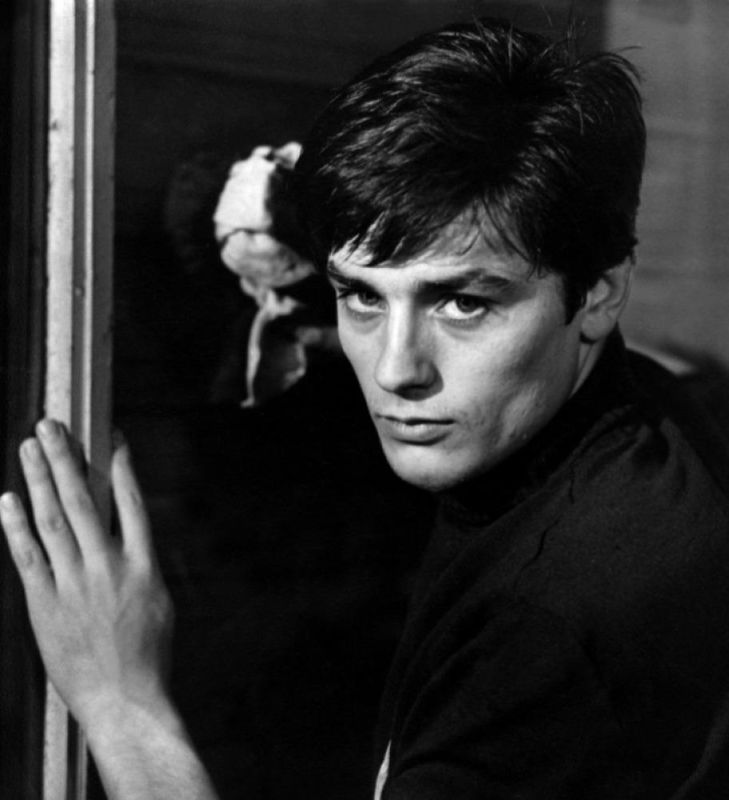
Alain Delon's death leaves a massive void in the French cultural landscape. With him, an entire era of cinema vanishes – an era of charismatic great actors who could single-handedly carry a film.
For millions of spectators worldwide, Alain Delon will forever remain the charming young man from Plein Soleil, the impassive gangster from Le Samouraï, or the fallen aristocrat from Le Guépard. His image, inseparable from that of French cinema in the 1960s and 1970s, will continue to haunt our screens and memories for a long time.
In the coming days, there is no doubt that tributes will continue to pour in to honor the memory of this giant of the silver screen. The entire cinema world is mourning the loss of one of its greatest stars.
Alain Delon leaves behind an exceptional filmography, a unique acting style and that unforgettable steely blue gaze, embodying the eternal seducer across the ages. More than an actor, a myth passed away on August 18, 2024. With him goes a part of ourselves, a fragment of our history, which we mourn today…
[gallery link="none" size="large" ids="282952,282951"]
Read more





Comments